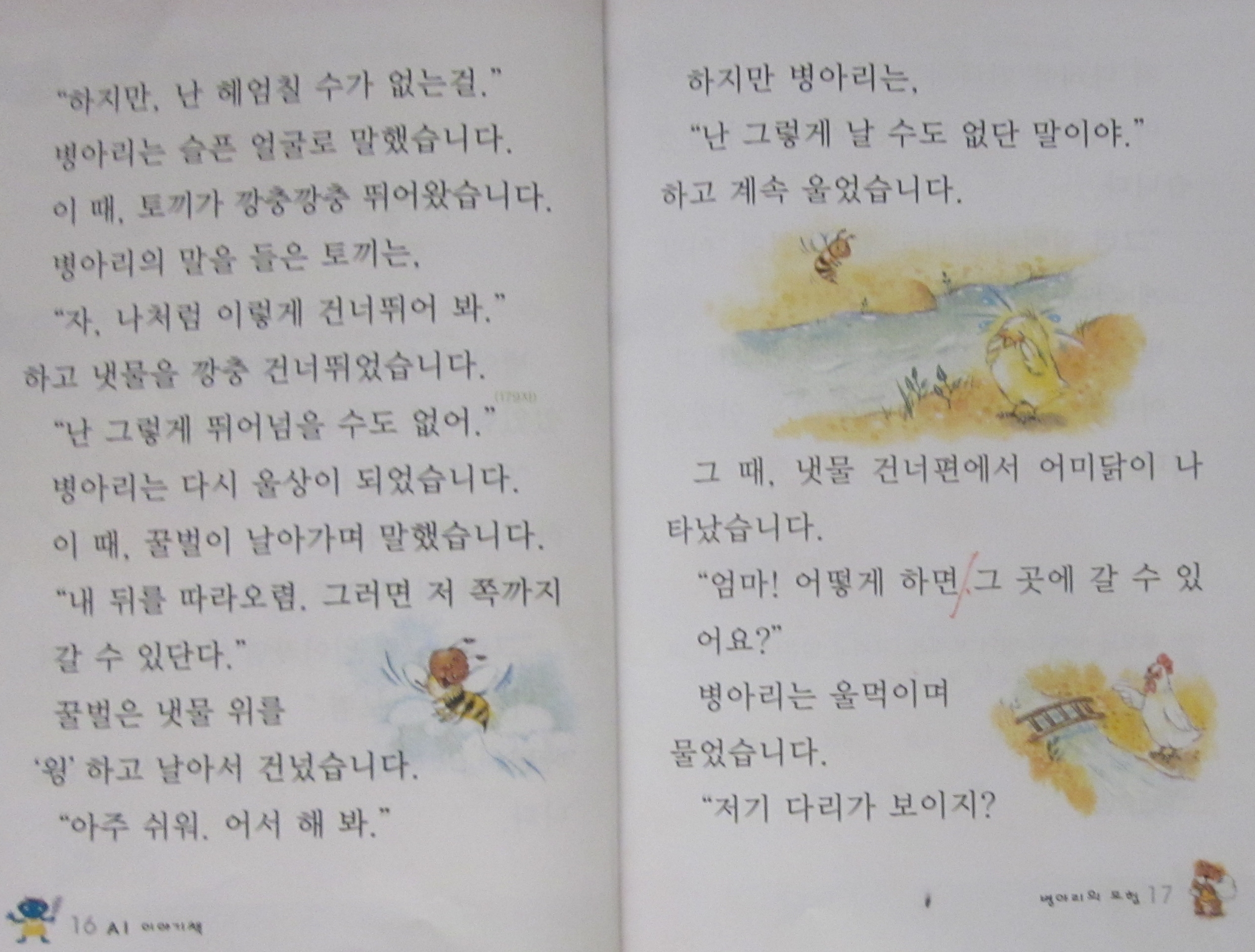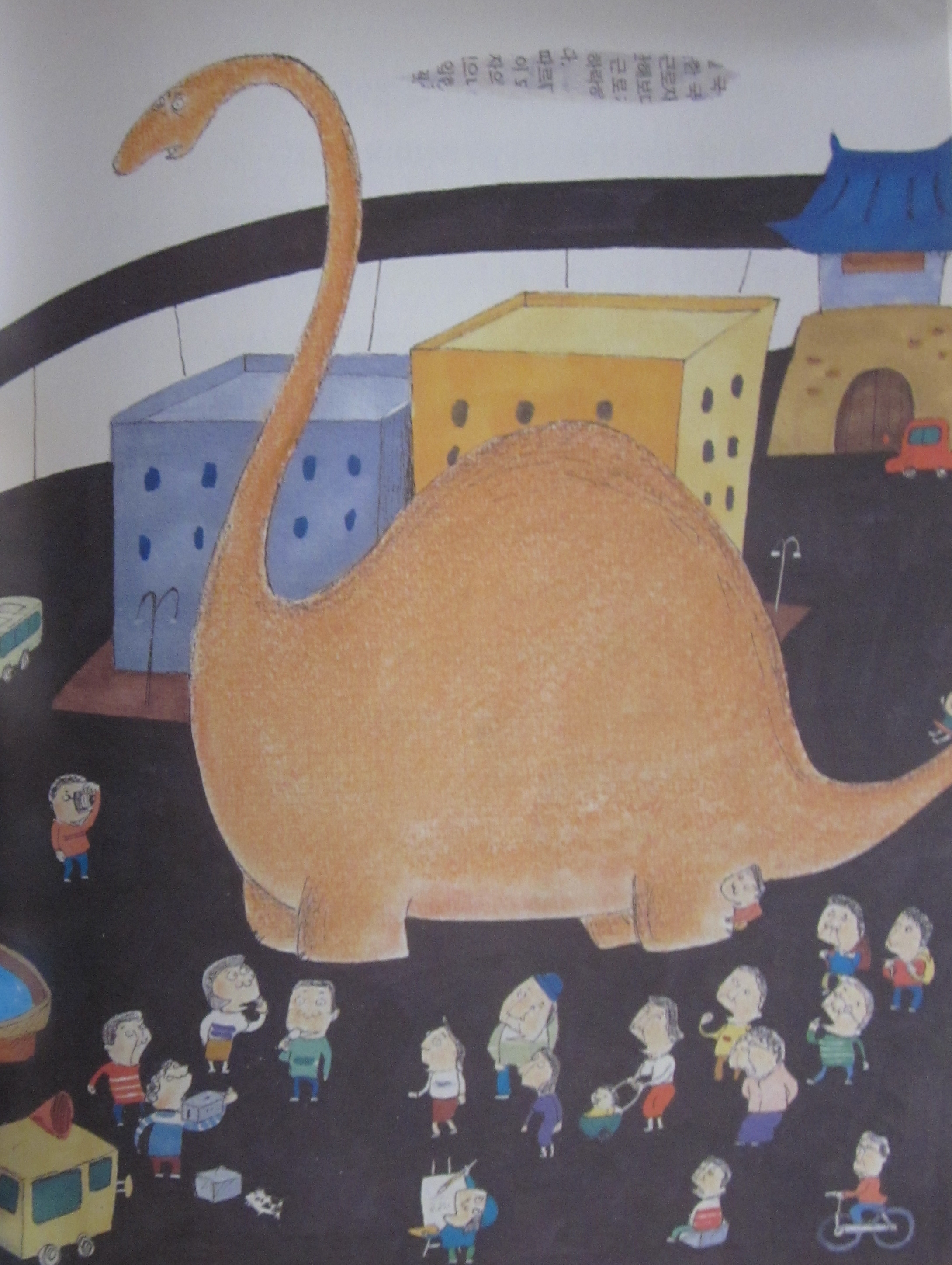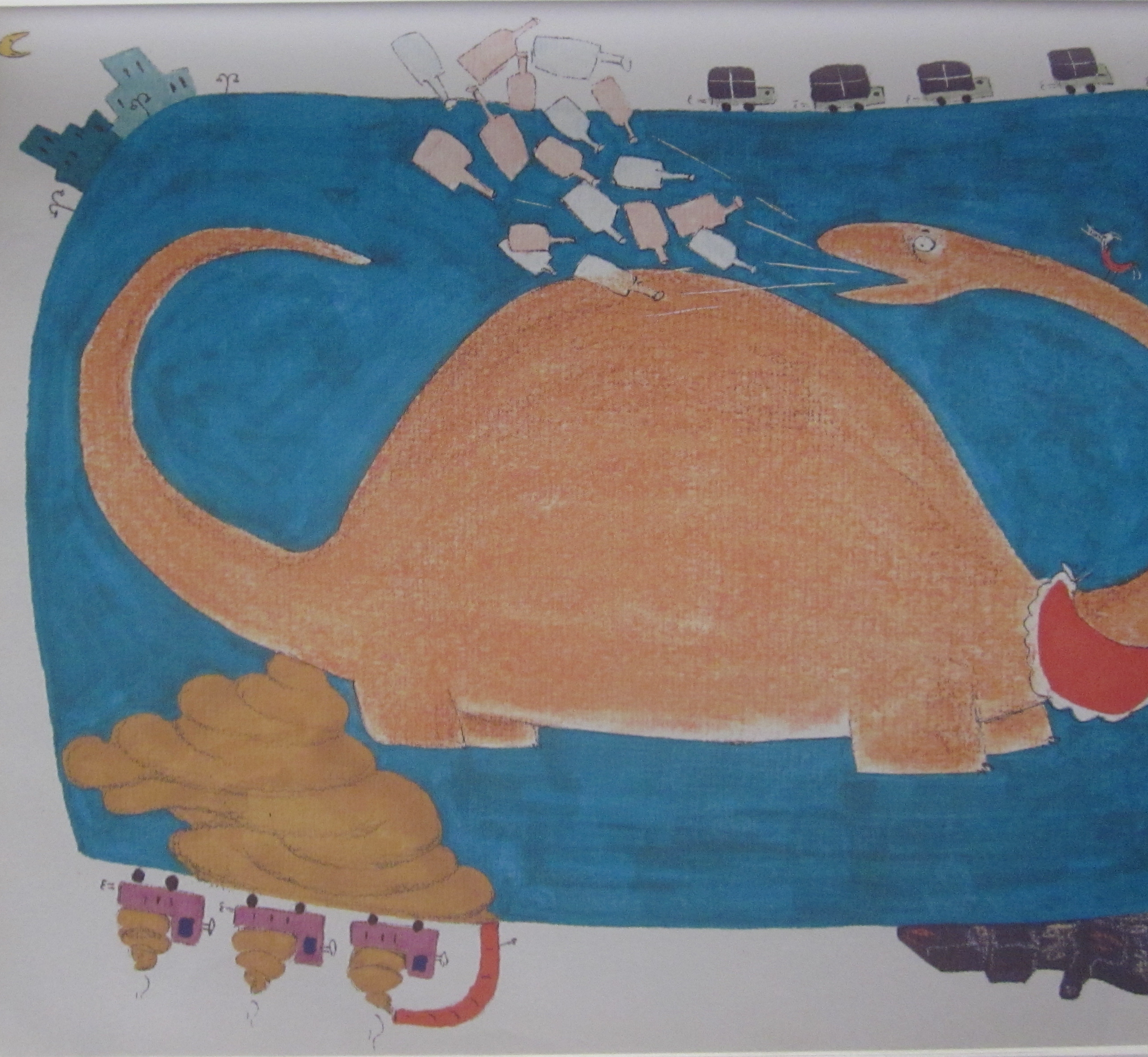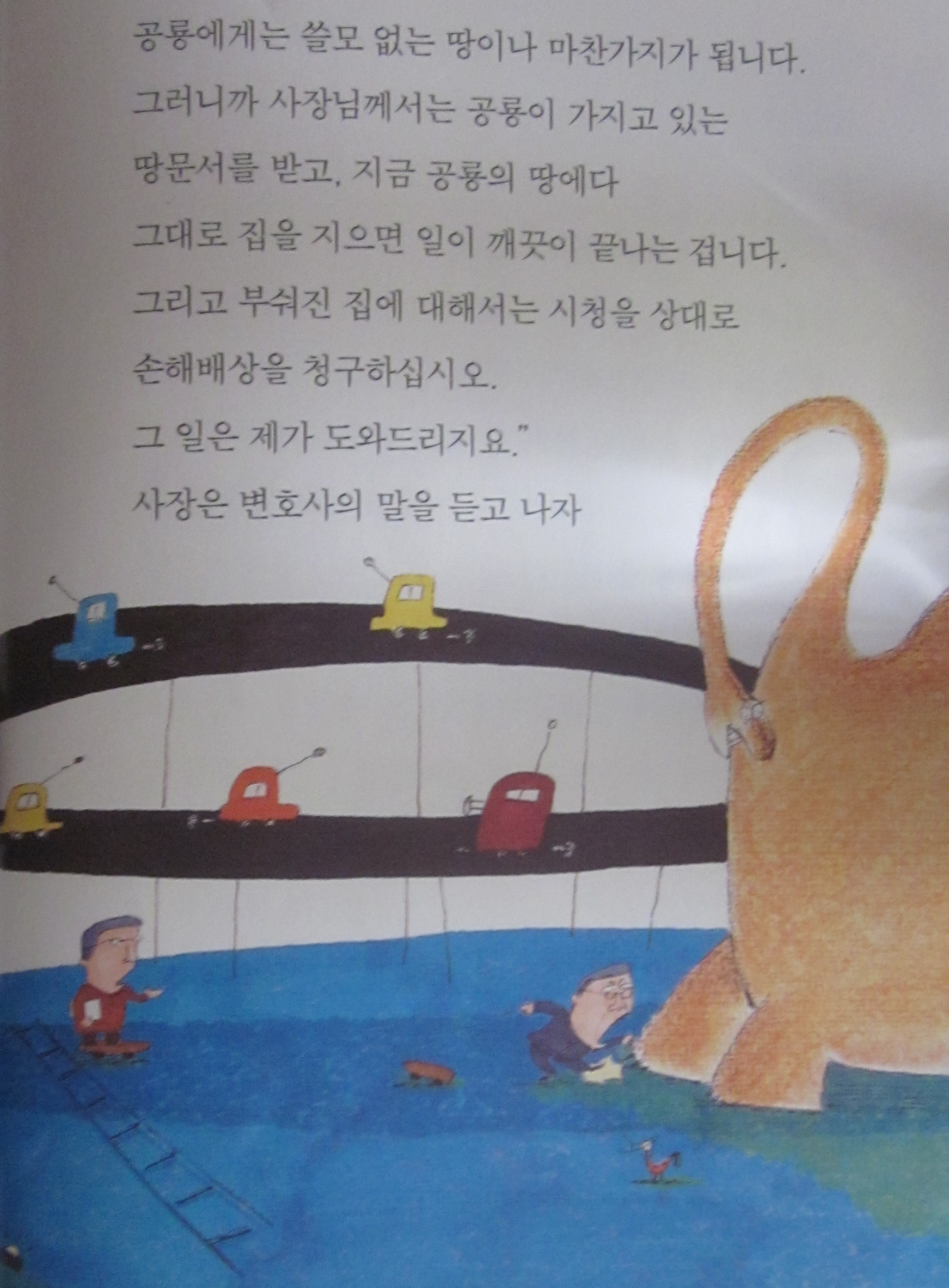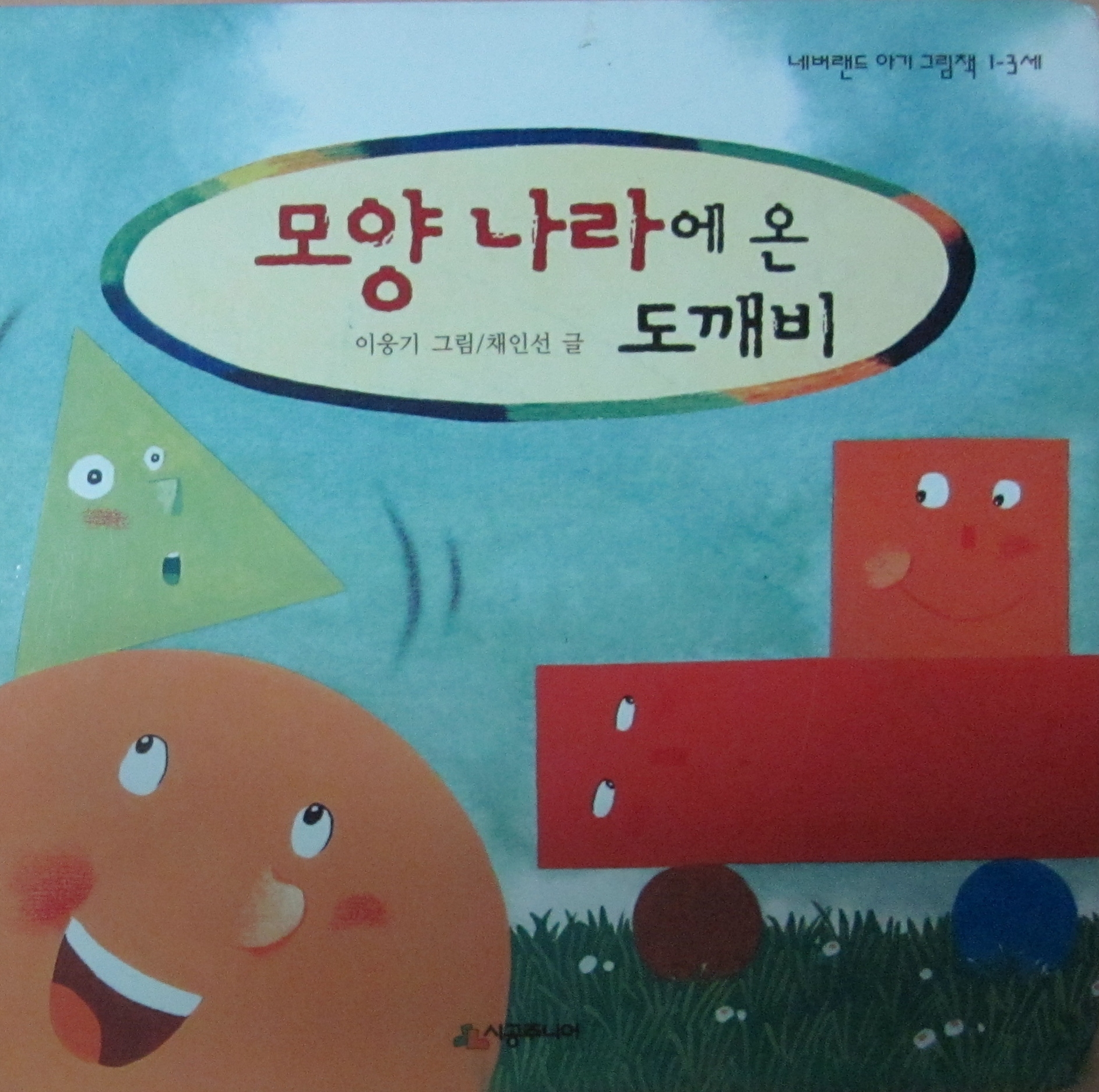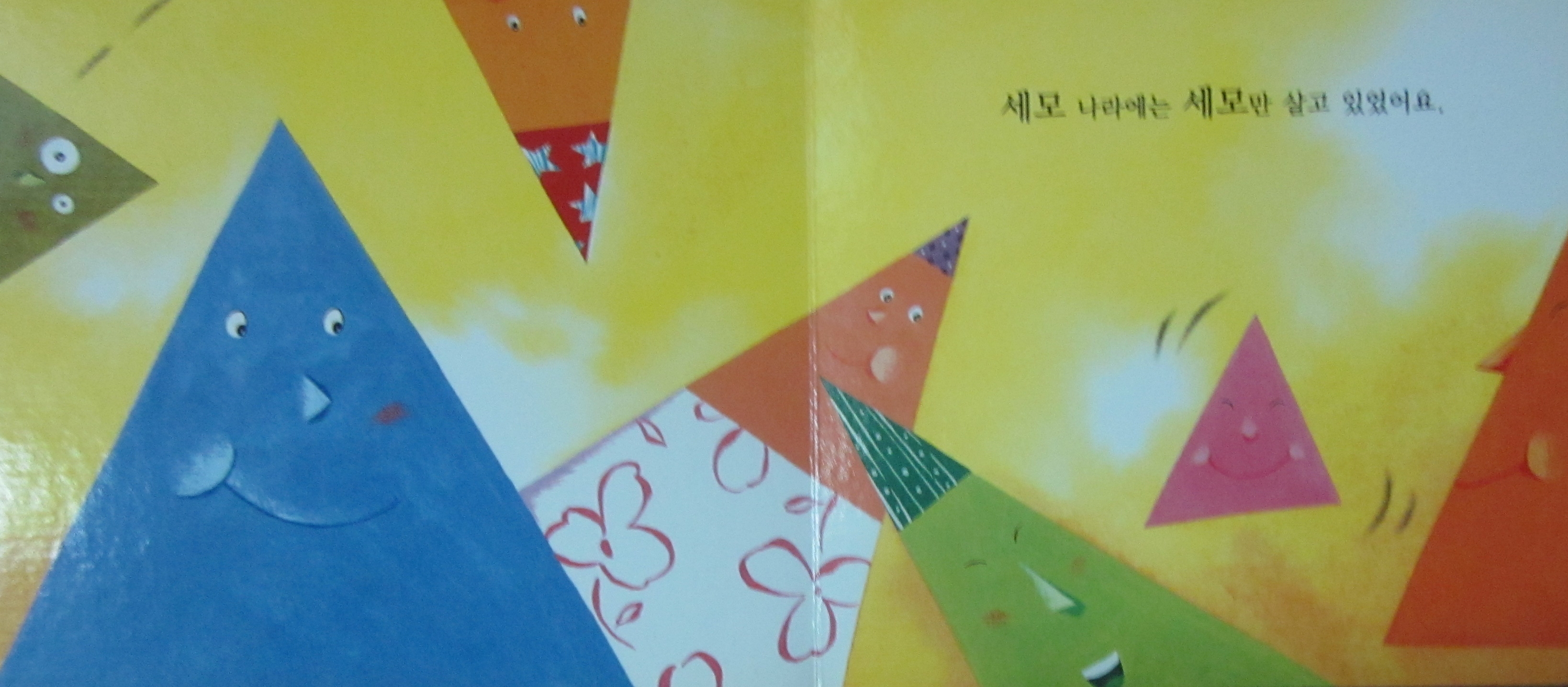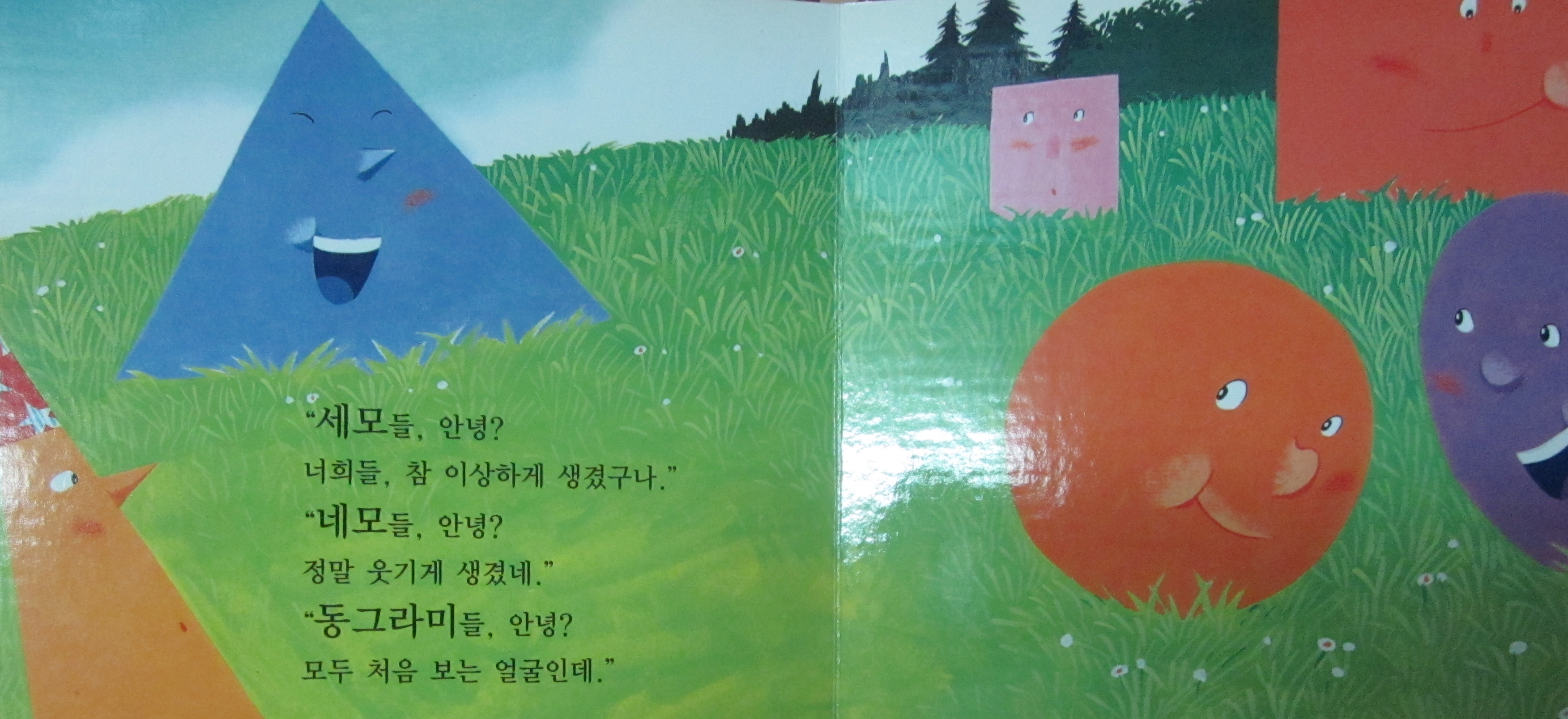낫 놓고 기역 자도 모른다
sickle lay-AND ‘giyeok’ letter doesn’t-know
[…like] laying down a sickle and not recognizing the letter ‘giyeok.’
[giyeok is written ㄱ]
This means “he doesn’t know his ass from a hole in the ground” and variations on that theme. It’s based on the idea that the Korean letter named ‘giyeok,’ which is written ㄱ, is evidently a sickle shape. To not know that is to be illiterate, and thus not particularly well-informed.
Category: 한국말을 배움 (Failing to Learn Korean)
Caveat: obscenity
Some middle-school students were giving speeches in one class, this evening. One boy, call him Eeyore, was trying to get another boy, call him Pooh, to laugh as the latter gave his speech. So Eeyore made a sign that said something obscene in Korean and attached it to his forehead. How was I, the teacher, not supposed to notice?
I swooped in and confiscated the sign. I folded it up and placed it in my pocket. One of the girls asked, "do you know what that means?"
I said I had some idea, but that I could go ask Curt (the principal) to find out the actual meaning. This panicked the kids. Soon they were begging me to return or destroy the note.
Then I said I was going to attach the note to my own forehead and go sit in the staff room. They found this both hilarious and scandalous.
After class was over, the two boys, Eeyore and Pooh, followed me down the hall, begging and pleading for me not to show the note to Curt. They didn't want to get in trouble. I had no intention of showing the note to Curt – or, at worst, if I did, I would anonymize it – I don't actually get my students in trouble with the higher-ups very often. It's not my style.
What was funnier was when, having failed to get me return or visibly destroy the note, the boys went and recruited two of the "smart" girls from the class to come beg on their behalf. This was machiavellian – they hoped, perhaps, that I'd be more likely to accede to pleas from the girls. I didn't. Eventually, I said only, "I'm not going to show it to Curt. I'm going to put it on my blog."
"Really?" Eeyore asked, stunned.
"Yes. But I can't put your name on my blog."
He cracked a smile. He realized I wasn't, in fact, intending to get him in trouble.
So, for the record, here's what the note said: "븅신 색히" [byung-sin saek-hi]. I actually can't really figure out what this means, literally. It seems to be an alternate pronunciation/spelling of "병신 새끼" [byeong-sin sae-kki = son-of-a-bitch]. But typing the phrase into google translate gives "freaks motherfuckers" – this latter fact causes me to suspect the alternate pronunciation/spelling represents pretty strong obscenity. Korean obscenity is really hard to translate, but I think this yields some insight into the pramatics.
[Daily log: walking, 4 km]
Caveat: 그 아비에 그 아들
그 아비에 그 아들
that father-TO that son
[…like] father [like] son.
Every language has this proverb. It’s too easy.
That’s my mood: I wanted something easy. I’m really not feeling well. I must be healthy for my upcoming trip.
[Daily log: walking, nowhere]
Caveat: 등잔 밑이 어둡다
등잔 밑이 어둡다
oil-lamp base-SUBJ is-dim
It’s dim at the base of the lamp.
People can’t see what’s in front of them. We all have trouble with this, right? Hmm, I wonder what’s in front of me that I’m not seeing. If I knew, I’d be seeing it, right?
Caveat: 빈정상했어
At work yesterday, the front-desk person was handing out some student-placement spreadsheet printouts and she skipped me. This always annoys me, because I have a genuine interest in what’s happening to the students.
I think they leave me out because they assume I’m not interested, since I don’t often don’t join in the discussions they have over these printouts (given that they are in Korean and/or they often seem to take place at times when I’m off teaching a class – my schedule is thicker in the afternoons whereas many of the teachers have a thin afternoon schedule and a thicker evening schedule, and so meetings are often in the afternoons).
So this time, I said something like, “why are you forgetting me, can I have one too?” and she happily complied.
But then Curt remarked, muttering, “빈정상했어” [bin-jeong-sang-haess-eo]. And of course I had no idea what this meant. And I wanted to know.
It therefore became a long, drawn-out discussion over what, exactly, this phrase means. The verb (빈정상하다 [binjeongsanghada] / alternate form 빈정사다 [binjeongsada]) doesn’t appear any online Korean-English dictionaries we consulted. Google translate doesn’t even try.
After some back-and-forth, we decided it meant something roughly like “peeve” as in, “he’s/you’re peeved” (the subject is left out in Korean and so you can fill in whatever verb subject fits the situation). But I wasn’t really satisfied with this.
The Korean-Korean dictionaries online don’t have the verb (or the pre-derived verb-noun 빈정상) either. For the near-match 비정상, they offer definitions as follows. The definitions are hard enough to understand – my “translations” of the definitions are tentative at best.
1.) 어떤 것이 바뀌어 달라지거나 탈이 생겨 나타나는 제대로가 아닌 상태. “The condition of [something] not being as one desires [such] that some kind of trouble or revised change appears.”
2.) 바르거나 떳떳하지 못한 상태. “The condition of being unable to be honorable or upright.”
These definitions utterly fail to match Curt’s off-the-cuff definition and don’t match my intuition of verb’s actual meaning. They don’t make any sense at all, in my opinion. So that’s not it. Just a lexical wild-goose-chase.
 Looking at the verb in parts (which isn’t always a smart or correct thing to do with Korean verbs, as my Korean tutor is constantly insisting), I see the first part is 빈정, which appears bound in other verbs like 빈정거리다, which means “to make a sarcastic remark.” And the second part is 상하다, which includes a definition “to be hurt, to be offended, to be troubled with.” This latter is promising – it seems to match Curt’s definition much better. If you add in a shading of sarcasm, it actually seems to capture my actual expression and manner pretty well.
Looking at the verb in parts (which isn’t always a smart or correct thing to do with Korean verbs, as my Korean tutor is constantly insisting), I see the first part is 빈정, which appears bound in other verbs like 빈정거리다, which means “to make a sarcastic remark.” And the second part is 상하다, which includes a definition “to be hurt, to be offended, to be troubled with.” This latter is promising – it seems to match Curt’s definition much better. If you add in a shading of sarcasm, it actually seems to capture my actual expression and manner pretty well.
So I’m going to offer a tentative English definition of the phrase “빈정상했어” as “he’s/you’re sarcastically peeved” … but in slangy pragmatics (and dating myself to the 1980s) as “don’t have a cow, man.”
What I’m listening to right now.
Linkin Park, “Pushing Me Away.”
Caveat: 거짓말도 방편
거짓말도 방편
falsehood-word-TOO expedient
Even a lie is expedient.
The end justifies the means. Eh? I try not to live by this maxim, but I know lots of people believe it.
Yesterday I stayed late at work, which is why I didn’t exercise. This morning I feel unmotivated. No lie.
Caveat: 똥배
I had fully intended to take advantage of having this Saturday off to travel down to Gwangju, this weekend. I had even declared my intention, which often serves to get me more motivated. But I have lost my motivation, once again, to travel. I have been so not-interested-in-traveling, in recent months – or even longer. The longest trip I’ve taken since moving back to Ilsan over a year ago is to Gangnam, on the south side of the Han River in Seoul. Why am I not into going places?
My journey has felt very interior, lately. I’m not sure that’s a good thing.
As far as traveling this specific weekend, to Gwangju… I suppose I’ve been feeling a little bit depressed, and it’s harder to get out and do stuff when in that state of mind, obviously. Foremost, I’ve been depressed about my health: my inability to lose the weight I’ve targetted for losing, my inability to exercise as much as I promise myself I’ll do, a sort of general feeling of poor health. My students don’t help – yesterday I had a grumpy student muttering under his breath about my 똥배 [ttong-bae] – literally, “shit-gut” but basically it’s a low-talking word for what we call beer belly. Students are often unkind.
I’m not as depressed about work as I had been feeling earlier this Spring, but I continue to despise my lack of DRIVE with respect to trying to improve my Korean. Although realistically, I am doing things, I am studying it, I am improving. But it’s so very, very slow. And take, for example, my recent resumption of my custom of posting vocabulary words alongside my blog entries, in my “-Notes for Korean-” (e.g. previous blog post). It’s pretty discouraging to go back and look at Notes from 4 years ago on this blog and see the exact same vocabulary items …talk about feeling like being on a treadmill.
Anyway, apologies to my various friends in Gwangju for the fact that I never go there to visit. To my other friends and family, apologies for blogging about utterly banal and depressing personal topics (TMI?)- but this blog is also, more and more, a kind of continuing journal of my life and state of mind.
This weekend, I am going to draw some pictures. Maybe.
Caveat: Finance
There is some guy in Russia who was previously convicted of operating a Ponzi scheme during the go-go post-communist 90's (his conviction was originally delayed because he managed to get elected to parliament, which gave him immunity). Now, he's operating a ponzi scheme again – but this time, he's announced that that's what he's doing, thereby perhaps avoiding illegality – seriously, is it illegal to bilk stupid people of their money, if you tell them that's what you're doing? He argues that that makes him no different than a major bank or a casino. See the article, here. It does rather raise ethical issues, and/or connect to what would be the various appropriate liberal/libertarian/conservative stances with regard to it.
Today I had a busy day despite the start of the test prep time – one of the other teachers was absent, and so I covered some extra classes. And I tried to study, some. And I saw Stephen Colbert
-Notes for Korean-
노래하는 분수대 [no-rae-ha-neun bun-su-dae] = the "Singing Fountain" at Ilsan's Lake Park
수위 [su-wi] = janitor
경비원 [gyeong-bi-won] = building watchman, doorman
바닥 [ba-dak] = floor, ground
마루 [ma-ru] = wooden floor
천장 [cheon-jang] = ceiling
칠판 [chil-pan] = blackboard, whiteboard, chalkboard
부엌 [bu-eok] = kitchen
거실 [geo-sil] = living room
전자레인지 [jeon-ja-re-in-ji] = microwave (electric-range)
가스레인지 [ga-seu-re-in-ji] = stovetop (gas-range)
오븐 [o-beun] = oven
커튼 [keo-teun] = curtain(s)
블라인드 [beul-la-in-deu] = blinds
유리장 [yu-ri-jang] = a pane of glass
시계 [si-gye] = clock, watch
벌 [beol] = punishment
체벌 [che-beol] = corporal punishment (observation on usage: Koreans seem to preferentially use this term for what I, personally, prefer to call "hazing" – it's punishment of the body not by hitting or hurting someone, but rather by compelling them to hold positions or engage in actions which cause discomfort to their own bodies, e.g. making students stand with their arms up in the air for extended periods of time, making them hold heavy objects, making them jog or do pushups or that kind of thing – it's basically boot-camp-style discipline; I don't think this really means corporal punishment the way Americans use that term, although the literal meaning is corporal punishment [body-punish])
교실 [gyo-sil] = classroom
식당 [sik-dang] = dining room [also restaurant]
침 [chim] = bed
침실 [chim-sil] = bedroom [bed-room]
의자 [ui-ja] = chair
창문 [chang-mun] = window
문짝 [mun-jjak] = door [one panel of a multi-part door]
문 [mun] = doorway, gate
책상 [chaek-sang] = desk
책장 [chaek-jang] = bookcase (or, the pages in a book)
식탁 [sik-tak] = table
소파 [so-pa] = sofa
(진공)청소기 [(jin-gong)cheong-so-gi] = vacuum [(vacuum) clean-machine)]
드라이기 [deu-ra-i-gi] = dryer (dry-machine)
기계 [gi-gye] = machine
냉장고 [naeng-jang-go] = refrigerator, cooler
식혜 [sik-hye] = Korean rice drink, cf. horchata
생강 [saeng-gang] = ginger
도토리 [do-to-ri] = acorn (powder, flour)
도토리묵 [do-to-ri-muk] = acorn jelly
염원하다 [yeom-won-ha-da] = to want strongly, to long for
호치키스 [ho-chi-ki-seu] = stapler (really, this is a brand name = ~Hotchkiss?)
절대 않다 [jeol-dae anh-da] = (I/you/he/she) never do/es that
절대 안했어요 [jeol-dae an-haess-eo-yo] = (I/you/he/she) never did that
절대 안할 거에요 [jeol-dae an-hal geo-e-yo] = (I/you/he/she) never will do that
뛰어넘다 [ttwi-eo-nam-da] = to hop
열대 [yeol-dae] = tropical (climate)
온대 [on-dae] = temperate (climate)
냉대 [naeng-dae] = arctic (climate)
아열대 [a-yeol-dae] = subtropical (climate)
야단맛다 [ya-dan-mas-da] = to be scolded
야단치다 [ya-dan-chi-da] = to scold
사랑스러운 눈길로 [sa-rang-seu-reo-un nun-gil-lo] = with a loving gaze
X스럽다 [seu-reop-da] = to feel X about someone else
받아들이다 [bad-a-deur-i-da] = to receive, to get
수용하다 [su-yong-ha-da] = to accept, to receive
수염 [su-yeom] = whiskers
뉘우치다 [nwi-u-chi-da] = to repent a sin
한 [han] = regret (N) [this is one of many homonyms of 한]
[Daily log: walking, 4 km]
Caveat: Caught Hypocrisizing
Well, not severely, but it was a bit hypocritical of me to criticize Martin’s unforgiving Yale-fication of the Korean language (as I did, originally, here), and then commit the opposite sin of failing to provide transliterations for those who might not be comfortable reading hangeul. Shame on me – I’m a lazy linguist, too.
This was brought to my attention by my friend Bob, who commented on a recent entry of mine about phenomimes and psychomimes (his comment is attached to that entry). So I have gone back and revised that entry to include transliterations using the revised SK government standard for romanization.
He also wonders about the difference between phenomimes and psychomimes. I’m a little vague on that, myself, but of those listed in the previous entry, I would hazard to say that maybe 살금살금 [san-geum-san-geum = sneakily] borders on psychomime territory, since it conveys an attitude more than a phenomenon. The difference is hardly clear, to me. But I would look to that kind of thinking as the criteria.
Caveat: 과부 사정 홀아비가 안다
과부 사정 홀아비가 안다
widow circumstance widower-SUBJ confront
The widower confronts [knows] the widow’s circumstances.
I don’t really know what this means. Googletranslate, oddly, translate the whole proverb as “It never rains but it pours,” which is to say, it’s matching it proverb-to-proverb from some source, but it definitely doesn’t have a clue as to how the components therefore fit together. Maybe it’s kind of like “takes one to know one”?
Being a widower, technically, myself, I’ve got to know!
[Daily log: walking, 5 km; running, 3 km]
Caveat: 의성어와 의태어
의성어 [ui-seong-eo] is phonomime, which is to say, an onomatopoeic word, a word that imitates a sound. 의태어 [ui-tae-eo] is phenomime, which differs in that it’s a kind of “sound symbolism” of a feeling rather than an imitative representation. I’ve written about these things before: see here. One of the most common google search terms that brings internauts to my blog randomly is “phenomimes and psychomimes.”
I’ll admit, these things fascinate me. I frequently revisit them. I found a very brief one page pdf summary of them, this morning. And there’s a chapter in Samuel E. Martin’s exhaustive and exhaustingly Yale-ified Korean grammar about them, too (p. 340~344).
I’ll reproduce some interesting vocabulary.
… some phonomimes:
추룩 추루룩 추루룩 [chu-ruk chu-ru-ruk chu-ru-ruk] = downpouringly
보글보글 [bo-geul-bo-geul] / 바글바글 [ba-geul-ba-geul] / 부글부글 [bu-geul-bu-geul] / 뽀글뽀글 [ppo-geul-ppo-geul] / 빠글빠글 [ppa-geul-ppa-geul] / 뿌글뿌글 [ppu-geul-ppu-geul] = boilingly, bubblingly
찰랑찰랑 [chal-lang-chal-lang] / 출렁출렁 [chul-leong-chul-leong] / etc. = lappingly, sloppingly
꽹구랑 꽹꽹깽 [kkwaeng-gu-rang kkwaeng-kkwaeng-kkaeng] = gongingly
… and some phenomimes:
살금살금 [sal-geum-sal-geum] = sneakily
깡충깡충 [kkang-chung-kkang-chung] = bouncily, “hoppingly” (also 깡총깡총[kkang-chong-kkang-chong])
말똥말똥 [mal-ttong-mal-ttong] / 멀뚱멀뚱 [meol-ttung-meol-ttung] = wide-eyed staringly
말랑 몰랑 물렁 [mal-lang mol-lang mul-leong] / 말캉 몰캉 물캉 [mal-kang mol-kang mul-kang] = softly / tenderly (as a texture of food)
살짝 [sal-jjak] / 설쩍 [seol-jjeok] = stealthily
싱글벙글 [sing-geul-beong-geul] = smilingly
날씬 [nal-ssin] / 늘씬[neul-ssin] = slimly, slenderly
통통 [tong-tong] / 퉁퉁 [tung-tung] = plumply
살살 [sal-sal] / 설설 [seol-seol] / 솔솔 [sol-sol] / 술술 [sul-sul] = gently, softly
싹독 [ssak-dok] / 썩둑 [seok-duk] = choppingly, snippingly
빡빡 [ppak-ppak] / 뼉뼉 [ppeok-ppeok] = crustily, tightly, narrow-mindedly
반짝 [ban-jjak] / 번쩍 [beon-jjeok] / 빤짝 [ppan-jjak] / 뻔쩍 [ppeon-jjeok] = sparklingly, twinklingly
A random picture (2010, Gwangju).

[Update (2015-10-08): I decided to create a consolidated list of examples, which I can update periodically.]
![]()
Caveat: the narcissism of small differences
I was reading an article at the Atlantic by Robert Kaplan about Vietnam's complex, fraught relationship with China, and how that has made them much more receptive to US influence in the region, despite the legacy of the Vietnam War. Whenever I study Vietnam, I'm always struck by the cultural and political similarities with Korea.
One phrase that he uses to describe the millenia-long influence of China on its southern neighbor is: "the narcissism of small differences." This made me laugh, because it's so precisely the sort of phrase that could be applied to the interesting cultural dynamics at play between Korea and China, too, or between Korea and Japan, or between North Korea and South Korea, for that matter. And I suppose it could apply to most any cultural interaction between related neighbors, e.g. Canada and the U.S., too. That being said, although it's a thought-provoking phrase, I don't actually think it conveys much information. It's more poetry than political analysis.
I spent the day today reading and cleaning my fridge. Not at the same time. And I tried to study a little bit, too. I'm still feeling very distressed and annoyed with my knowledge that I need to reduce my blood pressure, and I'm manifesting a definite lack of self-discipline in tackling it – step one: I ate too much today. It was healthy food, mostly… but it was too much. Pasta and stuff. Sigh.
-Notes for Korean-
[I'm resurrecting this "feature" of my blog from 2008/2009 – I think it helps me to organize my study efforts. I'm not sure why I ever stopped doing it, except that there have been periods when I've given up studying Korean.]
수영하다 = to swim (humans)
헤엄하다 = to swim (animals/fish)
모엄 = adventure
병아리 = chick (i.e. baby chicken)
시냇가 = stream, rivulet
건너다 = to cross
뛰다 = to run
마당 = yard
날다 = to fly
백설기 = a style of tteok that has a texture that resembles, in my mind, polenta
붐에 안다 = hug closely
알아차리다 = to realize (to come to know…) (so, 알아치리지 못했구나 = I didn't realize… )
가리키다 = to point
영리하다 = to be clever, to be smart
[Daily log: what, me exercise?]
Caveat: Stupid Chicken
I was reading the third story in my first grade A1 reader. It’s about a little baby chick trying to cross a stream. The chick gets advice from a duck (swim!), a rabbit (hop across!), a bee (fly!), but she’s very sad because she can’t do these things. And then the mama hen comes along and says: just walk across the bridge!
Oh! There’s a bridge… The chick says, “이렇게 쉬운 걸 가지고…” […like that, it’s easy].
For some reason, I found this intensely funny. What a stupid chicken. Cute story.
[Daily log: walking, 7 km]
Caveat: 웃는 낯에 침 뱉으랴
웃는 낯에 침 뱉으랴
smiling visage-AT spit spit-PROP
Shall we spit at a smiling face?
This is basically a proverb saying that someone is being ungrateful. It’s in an ironical propositive verb form of some kind, at least as best I can tell from my grammar.
Let’s be grateful, then.
Caveat: 제 눈에 안경
제 눈에 안경
my eye-LOC glasses
[…like] glasses on my eyes.
“Through rose-colored glasses,” basically. Looks good, as I see it.
This is simple, and useful. I will sometime use it.
I slept very strangely last night. Longer than usual. I don’t remember anything after lying down, though I know I must have read for a while. And now I feel hollow, strangely not-fully-present. What’s up?
Caveat: 이야기책A1
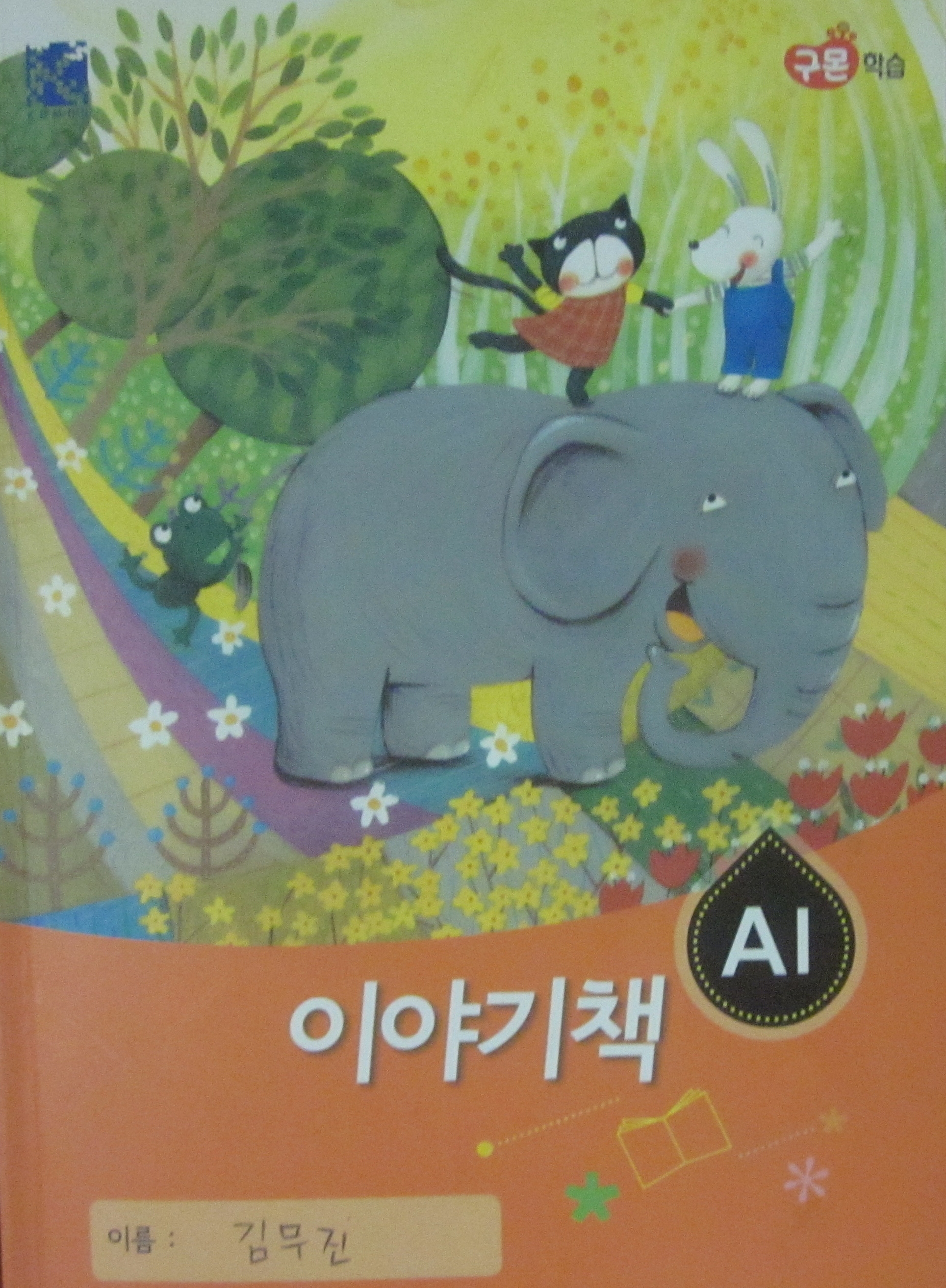 My current children’s-book-in-progress is 이야기책A1 – it’s a 1st grade “reader” and the title means “A1 Storybook” (cover picture at right). The stories are fairly easy to read. The second story is about why the cat washes his face after eating, but not before (which is what Korean children learn to do almost universally, I think – though that doesn’t mean they actually do it).
My current children’s-book-in-progress is 이야기책A1 – it’s a 1st grade “reader” and the title means “A1 Storybook” (cover picture at right). The stories are fairly easy to read. The second story is about why the cat washes his face after eating, but not before (which is what Korean children learn to do almost universally, I think – though that doesn’t mean they actually do it).
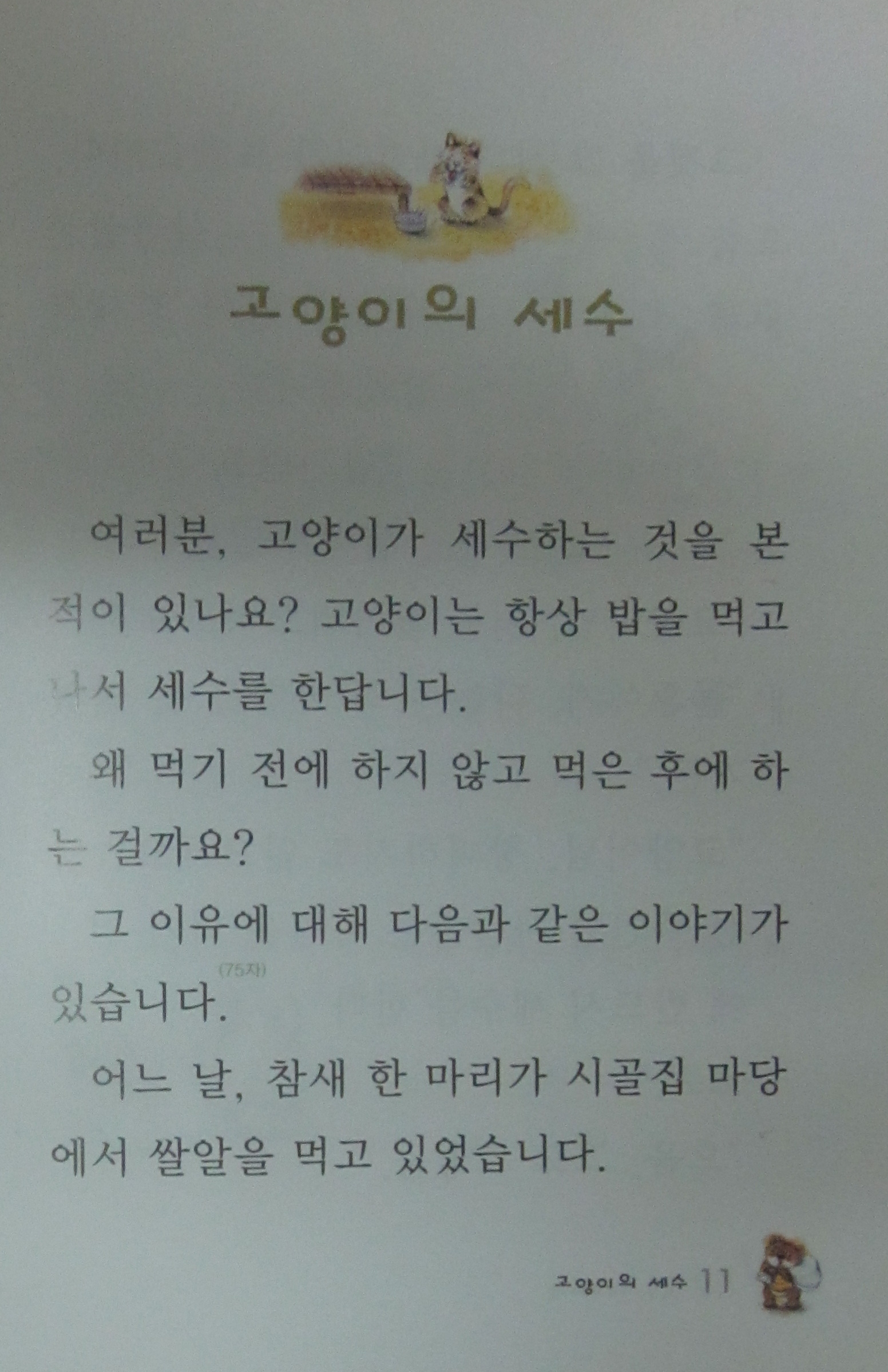 It’s told in an “oral tradition” style. Here’s how it goes:
It’s told in an “oral tradition” style. Here’s how it goes:
여러분, 고양이가 세수하는 것을 본적이 있나요? 고양이는 항상 밥을 먹고 나서 세수를 한답니다. 왜 먹기 전에 하지 않고 먹은 후에 하는 걸까요?
[Hey, everyone, have you ever seen a cat washing himself? Cats always wash themselves after eating. Why do they do that after eating but not before eating?]
And so it goes. It turns out the cat got tricked one time by a sparrow.
![]()
Caveat: 가는 말이 고와야 오는 말이 곱다
가는 말이 고와야 오는 말이 곱다
going word be-charming-IF coming word be-charming
If outgoing words are charming then incoming words are charming.
Speak well and kindly to others, and they will return the favor. This is the Golden Rule, applied to words, anyway. It’s also the converse of the famous dictum “garbage in, garbage out.”
I certainly think this true. It’s not always easy to keep to it, in practice, but I’m always and forever trying.
Caveat: 열길 물 속은 알아도 한 길 사람 속은 모른다
열 길 물 속은 알아도
ten gil [of] water inside know-BUT
한 길 사람 속은 모른다
one gil [of] a person inside don’t-know
One can know ten gil of water,
but one can’t know even one gil of a person.
A “gil” is a traditional measure, maybe 10 or 11 feet, but used as a “fathom” in English.
People are unfathomable. Um. Yeah.
Caveat: 쥐구멍에도 볕들 날 있다
쥐구멍에도 볕들 날 있다
mouse-hole-IN-TOO sunshine day there-is
Even in a mouse hole there is sunshine.
This means, “Every dog has his day,” or “Every cloud has its silver lining.” I hope so. I had a crappy day. I’m looking for the silver lining. What’s with that EP1 class, anyway?
What I’m listening to right now.
Bush, “The Chemicals Between Us.” I’m killing time before falling asleep reading the Food section of the LA Times online. Why do I do this?
[Daily log: walking, 4 km; running, 2 km]
Caveat: 나혼자
What I’m listening to right now.
씨스타 [Sistar], “나혼자” [I’m Alone]. Kpop-in-Vegas – looks like.
가사:
Whoo Whoo Whoo Whoo (I don’t wanna cry)
Whoo Whoo Whoo Whoo (Please dry my eyes)
Whoo Whoo Whoo Whoo (I’m fallin’ down)
Whoo Whoo Whoo Whoo (Without you I’m fallin’ down)추억이 이리 많을까 넌 대체 뭐할까 아직 난 이래 혹시 돌아 올까 봐
나 절대 이런 애 아닌데 이런 적 없었는데 사랑 너무도 독해 아직도 못 깼나 봐너무도 달콤한 니 말에 속아 이제와 혼자
I’m falling down I’m falling down
차라리 만나지 말걸 그랬어 이렇게 될 줄 몰랐어
이토록 쉽게 우린 끝인가요왜 또 나 혼자 밥을 먹고 나 혼자 영화를 보고
나 혼자 노래하고 이렇게 나 울고 불고 넌 떠나고 없어 후회해도 소용없어
오늘도 나 혼자
Whoo Whoo Whoo Whoo Whoo Whoo Whoo Whoo나 혼자 길을 걷고 나 혼자 TV를 보고
나 혼자 취해 보고 이렇게 매일 울고 불고
사랑 참 달콤했어 이별이란 그림자 안에서
오늘도 잠 못자
Whoo Whoo Whoo Whoo Whoo Whoo WhooDon’t tell me it’s over
날 안아줘 도대체 내게 넌 왜 이러는데
Oh Ma boy (Whoo Whoo Whoo)
오늘도 나 눈물로 지새워너무도 달콤한 니 말에 속아 이제와 혼자
I’m falling down I’m falling down
차라리 만나지 말걸 그랬어 이렇게 될 줄 몰랐어
이토록 쉽게 우린 끝인가요왜 또 나 혼자 밥을 먹고 나 혼자 영화를 보고
나 혼자 노래하고 이렇게 나 울고 불고 넌 떠나고 없어 후회해도 소용없어
오늘도 나 혼자
Whoo Whoo Whoo Whoo Whoo Whoo Whoo Whoo나 혼자 길을 걷고 나 혼자 TV를 보고
나 혼자 취해 보고 이렇게 매일 울고 불고
사랑 참 달콤했어 이별이란 그림자 안에서
오늘도 잠 못자
Whoo Whoo Whoo Whoo Whoo Whoo Whoo참 뻔하디 뻔한 너의 그런 빈번한 거짓말에 또 속았어
아주 값싼 니 미소에 홀린 날 갖고 너 재미있게 놀았어
이제와서 뭘 어쩌겠어 그리움에 갇혀 나 혼자서
니가 버린 내 맘 공허해 꼭 버려져 텅빈 거리 같아Whoo Whoo Whoo Whoo (I don’t wanna cry)
Whoo Whoo Whoo Whoo (Please dry my eyes)
Whoo Whoo Whoo Whoo (I’m fallin’ down)
Whoo Whoo Whoo Whoo (Without you I’m fallin’ down)
Caveat: 개똥도 약에 쓰려면 없다
개똥도 약에 쓰려면 없다
dog-shit-TOO medicine-AS use-intend-when there-isn’t
Even when you want to use dogshit as medicine, there isn’t any.
This is basically a proverb that means that no matter how minor your need might be, or how much you are willing to yield in the quality of what’s needed, in the moment of need, the needed thing is missing. It’s kind of like a version of Murphy’s Law: “If it can go wrong, it will.”
Caveat: 거지도 부지런하면 더운 밥 얻어 먹는다
거지도 부지런하면 더운 밥 얻어 먹는다
beggar-TOO diligence-DOES-IF warm-ADJ rice gets eats
If a beggar is diligent he can get and eat warm rice too.
Even googletranslate believes this has something to do with early birds and worms, so that must be the equivalent proverb. I never liked that proverb – mostly because I don’t feel like eating worms. But I understand the idea. I like the Korean version better – it’s very bootstrappy.
[Daily log: day-of-rest]
Caveat: please refrain from making love excessively
I ran across the following sticker recently.
The English translation in smaller letters is quite alarming. It says: “please refrain from making love excessively.” This seems R-Rated, and not the sort of thing a kid should have on a backpack.
But the Korean isn’t really that strongly worded. What it says is “애정행각금지.” A brief internet search and/or dictionary quest reveals that “애정행각” basically just means what Americans call PDA – “Public Displays of Affection.” So with the “금지” tacked on, a much better (and milder) translation would be “PDA Prohibitted.” This is much more G-Rated, and could even be imagined to be posted in a park or school or church. I think the point of the sticker is a little bit ironic. But with the atrocious English translation, it goes from irony to downright weird pretty quickly.
Caveat: 헌짚신도 짝이 있다
헌 짚신도 짝이 있다
old straw shoe-TOO mate-COMPL has
Even an old straw shoe has a mate.
There’s someone for everyone. “Every Jack has his Jill.” Really? I’m sceptical.
Caveat: 쓰레기를 먹는 공룡
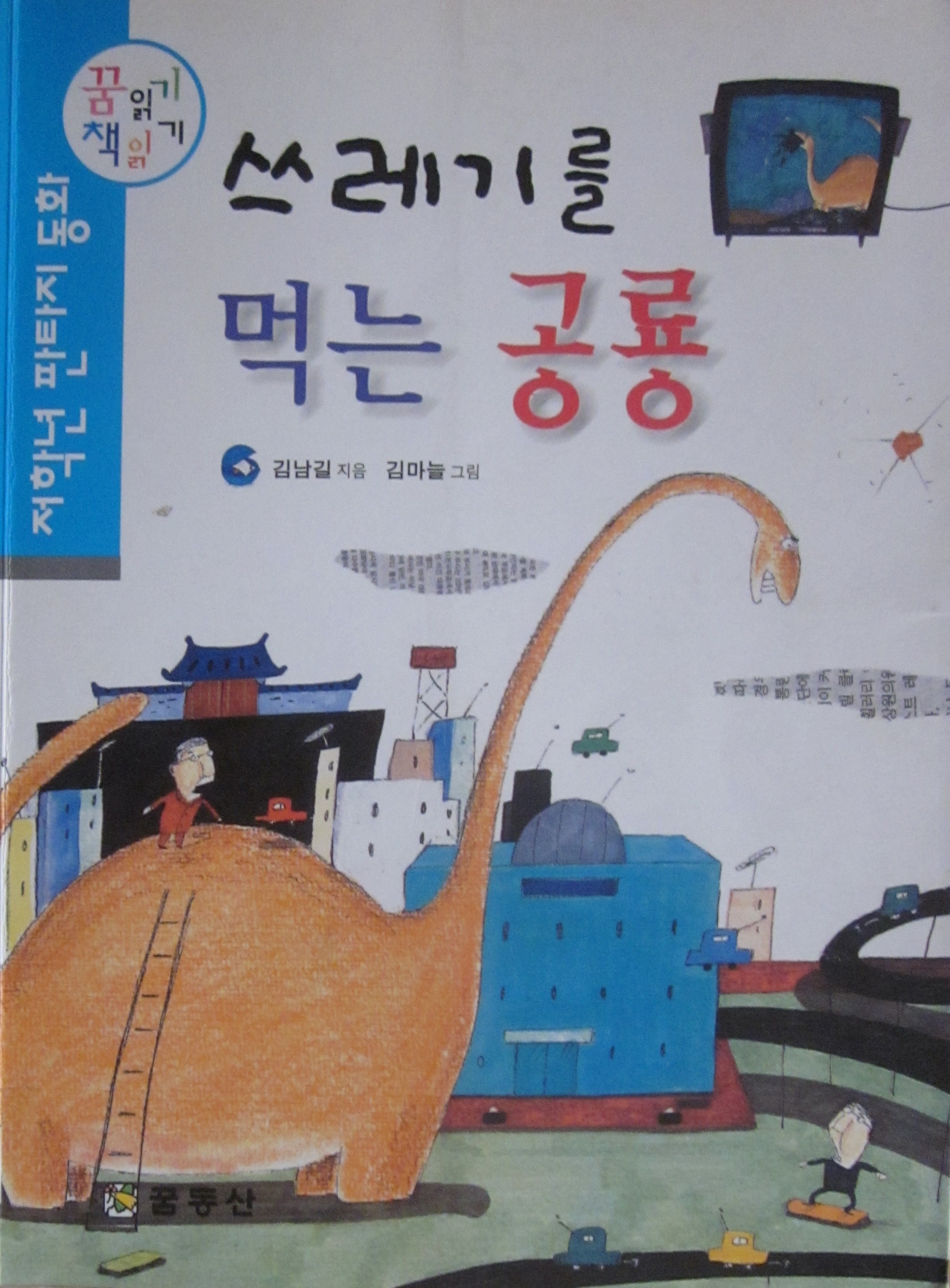 As long as we’re on the topic of dystopian(-ish) children’s literature (see previous post), I dug out one of my favorite Korean children’s books that I’ve run across (not that there are that many in my repertoire). It’s entitled 쓰레기를 먹는 공룡, which roughly translates as The Trash-Eating Dinosaur. I love this book, even though I have not, in fact, successfully read it front-to-back. I like the pictures, I like the aesthetic, I like the theme. And I’ve worked through some fragments. It’s a much higher-level, more difficult kid’s book than the others I’ve blogged about here so far. But anyway. I probably like it partly because it reminds me of the Wump World (see, again, previous post). More retro-futuristic dystopianism, but this time, with a Korean cultural twist.
As long as we’re on the topic of dystopian(-ish) children’s literature (see previous post), I dug out one of my favorite Korean children’s books that I’ve run across (not that there are that many in my repertoire). It’s entitled 쓰레기를 먹는 공룡, which roughly translates as The Trash-Eating Dinosaur. I love this book, even though I have not, in fact, successfully read it front-to-back. I like the pictures, I like the aesthetic, I like the theme. And I’ve worked through some fragments. It’s a much higher-level, more difficult kid’s book than the others I’ve blogged about here so far. But anyway. I probably like it partly because it reminds me of the Wump World (see, again, previous post). More retro-futuristic dystopianism, but this time, with a Korean cultural twist.
The basic plot is (or seems to be – remember that my ability to read Korean is pretty lousy) that there is a dinosaur that is discovered that eats trash. He’s put to work, but there are unforeseen consequences – environmental, of course, but also with respect to the dinosaur’s quality-of-life, if you will. Things are resolved happily, of course, just like the Wump World – it’s kid’s lit, after all.
Here are some samples of the book. I love the sketch-like illustrations. Here’s the dinosaur strolling around a clearly Seoul-like metropolis (note historical city-wall gate on upper right-hand edge of the drawing – it reminds me too of the 팔달문 neighborhood in Suwon where I used to stay).
Here’s the dinosaur hard at work. Note the iconic dung-piles in the lower left – these are part of a powerful contemporary visual meme among Korean school children – I see them drawn surreptitiously on desks, blackboards, and books on a daily basis.
I like the politician or public official trying to berate (or interview? – these concepts are interconnected in Korean culture) the dinosaur in this picture.
Caveat: 떡 본 김에 제사 지낸다
떡 본 김에 제사 지낸다
rice-cake seen while-AT ancestral-rites stay
As long as you’ve seen the rice-cakes, stay for the ancestral rites.
I found this one in my grammar bible in slightly different form, while researching the paraphrastic “-ㄴ 김에” – which at least I recognized as a paraphrastic. It is glossed as “while one is at something,” and I took the liberty of reading it in this case as “as long as one has V.” The equivalent proverb in English might be “Strike while the iron is hot.” As long as you’re doing one simple thing, do the other more complicated thing as well.
Caveat: careless careless
What I’m listening to right now.
Exo-K, “Mama.”
가사 (lyrics):
Careless, careless. shoot anonymous, anonymous
Heartless, mindless. no one, who care about me?잃어버린 채 외면하는 것 같아 참을 수밖에 없어
눈을 감지만
마마! 이젠 내게 대답해줘 왜 사람들이 달라졌는지
아름다운 시절이라는게 존재하긴 했는지
이제 더는 사랑하는 법도 잊었고 배려하는 맘도 잃었고
등을 돌린 채로 살아가기 바쁜걸
명의 가면에 감췄던 살의 가득한 질시
끝을 봐도 배고픈 듯한이젠 만족해?
* 우린 더 이상 눈을 마주 하지 않을까?
소통하지 않을까? 사랑하지 않을까?
아픈 현실에 다시 눈물이 흘러
바꿀 수 있다고 바꾸면 된다고 말해요 마마. 마마.
Turn back!죽고, 죽이고 싸우고 외치고. 이건 전쟁이 아니야.
도와줘요 마마마마 마마마마 Turn back.
깨닫게 마마마마 마마마마 Rolling back.
박고 치고 편을 나누고 싸우고 이건 게임도 아니야.
도와줘요 마마마마 마마마마 Turn back.
Yeah-Careless, careless. (마마) Shoot anonymous, anonymous. (마마)
Heartless, mindless. (마마) No one. Who care about me? (마마)삶에 허락된 축복받은 날들에 감사하고
매일 새로운 인연들을 만들고
깨져버린 마음에 보다, 기쁜 사랑을 모두 함께
웃을 수 있다면
우린 더 이상 눈을 마주 하지 않을까?
소통하지 않을까? 사랑하지 않을까?
아픈 현실에 다시 눈물이 흘러
바꿀 수 있다고 바꾸면 된다고 말해요 마마. 마마.Careless, careless. shoot anonymous, anonymous
Heartless, mindless. no one, who care about me?익명의 가면에 감췄던 살의 가득한 질시
끝을 봐도 배고픈 듯한
이젠 만족해?우린 더 이상 눈을 마주 하지 않을까?
소통하지 않을까? 사랑하지 않을까?
아픈 현실에 다시 눈물이 흘러언젠가부터 우린 스마트한 감옥에 자발적으로 갇혀
0과 1로 만든 디지털에 내 인격을 맡겨
거긴 생명도 감정도 따듯함도 없고 언어 쓰레기만
나뒹구는 삭막한 벌판.
날이 갈수록 외로움만 더해져
우리가 인간일 수 밖에 없는 건 상처 받는 것. Yeah-만나고 손을 잡고 느끼며 함께 울고 웃고
닮아가고 서로 연결돼.
돌이키고 싶다면
Caveat: 우리다같이 케이크를 만들자
This story book is not native Korean. It’s a translation of something by Helen Oxenbury. But it translates well to the contemporary Korean cultural milieu, methinks.
It’s about this kid’s birthday. The title in Korean is 오늘은 내 생일이야. Here’s the Korean cover.
The kid goes around getting ingredients for his cake from various animals. The take-away phrase: “갖다 줄게” [I’ll bring it.]
My favorite part (i.e. cutest picture) is when they then all get together to make the cake, near the end.
The line at the end of this page: “우리다같이 케이크를 만들자” [Let’s all of us together make the cake].
Caveat: 소 잃고 외양간 고치기
소 잃고 외양간 고치기
cow lose-AND stable fix-GER
[…like] fixing the stable after losing the cow.
The proverbial meaning is obvious, and matches English’s “Closing the barn door after the horse is gone.”
It’s a sunny Spring morning. The sky is hazy. Next week is my one-year anniversary of departing Hongnong. It feels like yesterday. I miss some aspects of it – it was a complex and life-altering experience in a way that the year since then has not been. But it wasn’t sustainable for me. So I cannot regret having left, and having come here. This has been a much more low-key, stable-feeling, emotionally sustainable year. More on meditations on renewal, later.
Caveat: 모양 나라에 온 도깨비
I like children’s books. I like the Korean language. So my recent decision to try to read one Korean kid’s book each week as part of my efforts to learn the language seems destined to be a win-win. Here’s the book. It’s very low level, of course – such is my proficiency with Korean.
The book is called 모양 나라에 온 도깨비, which I would translate as “The gnome who came to the land of shapes.” It’s not really a gnome – a 도깨비 [do-kkae-bi] is a native Korean fairy-tale creature that’s kind of a cross between a gnome and a unicorn, maybe.
Here’s the cover.
The first page introduces the land of triangles.
Other shapes are introduced, farther along. Then all the various shapes, who seem to live in segregated neighborhoods, all run into each other while on a picnic. The plot thickens. So does the Korean – this next was a difficult page to decipher.
A rough translation of this page:
Hello, triangles!
You guys are a little bit weird-looking.
Hello, rectangles!
Really funny-looking.
Hello, circles!
First time ever to see such faces.
Then things get bad. There’s a wind-storm; the shapes get mixed up with each other, and then the gnome shows up. Oh noes!
But it’s a kid’s book. There’s a happy ending.
Caveat: Um… Korean Reggae? Really?
I’m not sure if that’s really what this is. Does Korea have reggae? But I saw the term applied to this singer. I kind of like it, actually, despite not being a big reggae fan, normally. The genre assignation doesn’t seem exactly right, either, though.
Maybe it’s just this song.
What I’m listening to right now.
하하 [Haha], “그래 나 노래 못해 [geurae na norae mothae = so I can’t sing].”
Haha. Funny.
가사 [lyrics]:
그래 나 노래 못해
그래도 난 노래해
내 Soul과 My Feel로
그래 나 노래 못해
그래도 난 노래해
내 Soul과 My Feel로
예에헤
뒤에서 다들 그래
난 노래 하지말래
웃기고 앉아있네
노래할래
여러분 나 병에 걸렸어
이놈의 병 때문에
암것도 못해
성대결절에
내가 들어도 듣기 싫은
이 목소리에
노래 노래
그놈의 노래라는 병에
걸려버렸어
상처는 덮어두면
더 깊어지는 법
그래 나 노래 못해
그래 나 노래 못해
그래도 난 노래해
내 Soul과 My Feel로
예에헤
뒤에서 다들 그래
난 노래 하지말래
웃기고 앉아있네
노래할래 이렇게
라 라라라라라
라라라라 라라라
아버지가 말씀하셨어
신께선 모두 다
주시지 않는다고
그래서 세상은
공평하다고 인정했어
맘은 안 그래도
어린날 때론
세상에 주먹질과 욕도
맘껏 해봤어
잘못된 길의 지도를
만들었던 것
그래 나 노래 못해
그래 나 노래 못해
그래도 난 노래해
내 Soul과 My Feel로
예에헤
뒤에서 다들 그래
난 노래 하지말래
웃기고 앉아있네
노래할래
(몹쓸병에 걸려 누워있는)
(병실에도 흘러나오길)
(오늘도 살기위해)
(야근하고 있는)
(회사에도 흘러나오길)
(어둠과 꿈을 위해)
(펜을 잡고 있는)
(학교에도 흘러나오길)
(지친 영혼을 일으켜)
(세울수 있는)
(노래가 되길)
(더 크게 더 크게)
(더 크게 이렇게)
그래 나 노래 못해
그래도 나 노래해
내 Soul과 My Feel로
오~ 예
뒤에선 다들 그래
난 노래 하지말래
웃기고 앉아있네
노래할래
그래 넌 잘될거야
미친듯 잘될거야
세상이 몰라줘도
잘될거야
그래 난 잘될거야
죽어도 잘될거야
세상이 몰라줘도
노래할래
Caveat: 어물전 망신은 꼴뚜기가 시킨다
어물전 망신은 꼴뚜기가 시킨다
fish-store dishonor small-octopus-SUBJ causes
A small octopus causes a fish-store[‘s] dishonor.
A single small member of a large organization can ruin it for everybody. That’s what this seems to mean. “One bad apple ruins the barrel” might be an English equivalent.
Caveat: 개구리 올챙이 적 생각도 못 한다
개구리 올챙이 적 생각도 못 한다
frog tadpole enemy consider-to-be–too cannot
A frog cannot consider a tadpole to be an enemy.
Don’t make enemies of those coming up the ranks, below you. This is perhaps relevant to the teaching profession (note this is a gross understatement). This sentence is devoid of the typical case-markings of Korean (which are always optional in any event, making it a bit harder to sort out – I also didn’t realize that 생각하다 could be a “ditransitive” verb (as the linguists might call it): I decided it must mean something like “consider X to be Y” in this context, and based on the putative proverbial meaning of the phrase. The word 적 is a problem because it has so many possible meanings, including a number of uses as a particle in derived noun phrases – I only got “enemy” because it was there in the translation.

